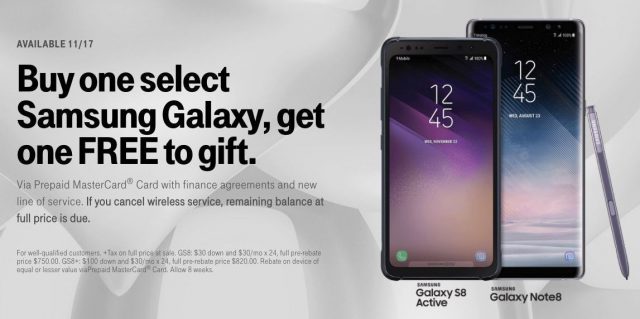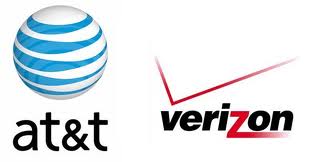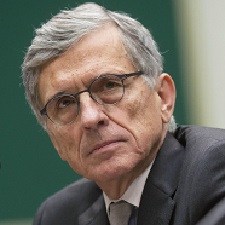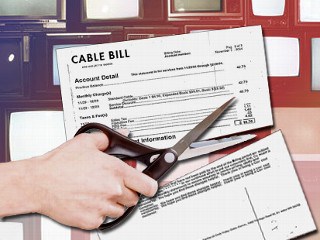 Wireless carriers like AT&T and Verizon Wireless have reneged on promotions offering customers free phones and “buy one, get one free” deals that leave customers on the hook for hundreds of dollars in equipment charges.
Wireless carriers like AT&T and Verizon Wireless have reneged on promotions offering customers free phones and “buy one, get one free” deals that leave customers on the hook for hundreds of dollars in equipment charges.
With the holiday shopping season about to begin, phone promotions will be heavily advertised. But those deals may be too good to be true, according to consumer protection groups.
The Better Business Bureau said the problems customers are reporting are serious, and growing. Since the beginning of this year, BBB president (Southern Piedmont) Tom Bartholomy said the group has received almost 6,800 complaints about wireless provider advertising, sales, and promotional practices.
“We’re talking hundreds of complaints about a similar type of situation,” Bartholomy told WSOC-TV. “[It] points to an underlying cause, an underlying concern, with those types of promotions.”
WSOC’s consumer reporter has been inundated with complaints from his North Carolina viewers about broken promises:
Rachel Seighman lives in Monroe. She said, “(I) wanted to try to get a cheaper plan for my family. So, I tried AT&T out.” She said she got her bill and “it was going to be about $60 higher per month than they said.” So, she called AT&T. “I was told that the price they quoted me at was not correct,” she said.
Cynthia Emrich lives in Stanfield. She took advantage of an AT&T “buy one, get one free” offer for a Samsung phone. But, she said AT&T charged her for both phones. “So I call them and they said it would straighten itself out, and it never did,” she told Action 9. She said she called the company every month for 2 1/2 years. “It was frustrating every month.”
Denise Reid lives in Fort Mill. She said she went with a Verizon “buy one, get one free” deal for an iPhone, but that the company charged her full price. “They could not give me a reason as to why,” she said. “No reason as to why.”
Joseph Mayberry lives in Hickory. He told Action 9 a similar story. All four customers said they tried to resolve things on their own but couldn’t. “I would call someone. I would go through the long story of what happened. I would get to the supervisor level. I’ve got emails saying I would be credited back and a phone call would follow. Never got the phone call,” Mayberry said.
 Many customers are tripped up by the fine print in promotional offers that frequently contain complicated conditions and opaque language. Some insist company representatives assured them that the promotion was valid only to find out later they were misled. In fact many promotions contain strict provisions that, if not followed precisely, invalidate the promotion.
Many customers are tripped up by the fine print in promotional offers that frequently contain complicated conditions and opaque language. Some insist company representatives assured them that the promotion was valid only to find out later they were misled. In fact many promotions contain strict provisions that, if not followed precisely, invalidate the promotion.
Here are some common tricks and fine print traps you may encounter getting your “free” phone:
- Many “Buy 1, Get 1” promotions require the customer to activate and maintain a new line of service to qualify for a free phone, which can cost nearly $50 a month for a plan, including additional surcharges and taxes. Customers that fail to follow through on this condition or quickly terminate the extra line after moving the device to a different line on their account were often charged full price for both phones.
- Some promotions require customers to sign up for a “device payment agreement” to qualify for the free phone. That is actually a contract to pay off a device with monthly installment payments at 0% interest billed to your mobile account. The free device promotion is often tied to the payment agreement. If a customer buys the first phone and pays for it upfront there is no payment agreement, and no free phone. Some promotions require customers to maintain a device payment agreement for up to 30 months. If a customer violates any terms of the promotion, such as paying the phone off early or selling it, the company might bill you for the “free” phone.
- Some companies take months to begin crediting your account for the monthly installments that will appear on your bill. Customers will eventually see a monthly device payment charge and a corresponding credit in the same amount for your “free” phone. But until bill credits start to appear in 60-90 days, you are responsible for the installment charges.
- “Free” phone promotions often conflict with other service plans and features. Customers that have signed up to receive a new phone every two years may have to turn
 in their “free” phone and walk away from several delayed reimbursement credits before getting they can obtain their next new device.
in their “free” phone and walk away from several delayed reimbursement credits before getting they can obtain their next new device.
Many customers underestimate the true cost of complying with the terms necessary to get that “free” phone. That realization usually comes too late to return it, leaving customers with several hundred dollars in equipment fees — a costly mistake that could ruin any holiday.
It is important to carefully study the terms and conditions of all wireless device promotions. The written contract is valid, promises from overeager salespeople are not. Be wary when you see “device payment agreement” or “activate and maintain a new line of service,” or “promo credit applied to account over 24 mos w/in 1-2 billing cycles; promo credit ends when balance paid or line terminated/transferred.” If you do, it could mean you will need to set up an installment payment plan for that “free” phone, keep it on your account as a new line of service for at least two years, and avoid paying it off in advance or attempt to move the phone to a different account or provider.
If negotiating with your provider has failed to resolve a conflict over the promotion, taking your case to the media over the terms of a possibly deceptive promotion can be effective in getting what you thought you were promised. When these customers contacted WSOC-TV and the station took the complaints back to AT&T and Verizon, the company quickly gave all four customers their free phones.
“Nobody would listen to me until [WSOC] actually reached out to them. And then within two hours, I got a phone call from AT&T,” Emrich told the station. “If it wasn’t for Action 9, I would have never got that refund.”
AT&T claimed in a statement it honors all of its deals. Verizon tried to refer complaints about its promotions to the wireless industry lobbying group — CTIA. That group does not understand why Verizon did that and claims it isn’t familiar with cell phone promotions. Neither are most consumers.
WSOC-TV consumer reporter Jason Stoogenke investigates cell phone promotions that sound too good to be true. (3:36)
Verizon pulled out of a promo for a free iPhone for this North Carolina customer. Nobody knows why. (1:16)
Verizon messed up a promotion offering two phones for the price of one and left this customer out in the cold, telling him he needed to pay full price for both phones. (1:14)
 Subscribe
Subscribe



 “Even if it was passed by the House, the Republican-controlled Senate would not likely support it. Even if they miraculously passed a bill, President Trump would no doubt veto it, having previously spoken out against net neutrality,” Wheeler said. “The only foreseeable legislative path would be with the support of the network companies, and that support would come at the price of watering down the proposal to render it virtually meaningless.”
“Even if it was passed by the House, the Republican-controlled Senate would not likely support it. Even if they miraculously passed a bill, President Trump would no doubt veto it, having previously spoken out against net neutrality,” Wheeler said. “The only foreseeable legislative path would be with the support of the network companies, and that support would come at the price of watering down the proposal to render it virtually meaningless.” Cord-cutting is taking an increasing toll on pay TV companies as
Cord-cutting is taking an increasing toll on pay TV companies as  From the producers of Dividing Lines:
From the producers of Dividing Lines: Wireless carriers like AT&T and Verizon Wireless have reneged on promotions offering customers free phones and “buy one, get one free” deals that leave customers on the hook for hundreds of dollars in equipment charges.
Wireless carriers like AT&T and Verizon Wireless have reneged on promotions offering customers free phones and “buy one, get one free” deals that leave customers on the hook for hundreds of dollars in equipment charges. Many customers are tripped up by the fine print in promotional offers that frequently contain complicated conditions and opaque language. Some insist company representatives assured them that the promotion was valid only to find out later they were misled. In fact many promotions contain strict provisions that, if not followed precisely, invalidate the promotion.
Many customers are tripped up by the fine print in promotional offers that frequently contain complicated conditions and opaque language. Some insist company representatives assured them that the promotion was valid only to find out later they were misled. In fact many promotions contain strict provisions that, if not followed precisely, invalidate the promotion. in their “free” phone and walk away from several delayed reimbursement credits before getting they can obtain their next new device.
in their “free” phone and walk away from several delayed reimbursement credits before getting they can obtain their next new device.